7 Slow Feed Do’s and Don’ts for Horses
Following are 7 helpful tips and realistic expectations to consider when using any brand of slow feeder or small mesh hay net. This is valuable information whether you currently use slow feeders or are debating to try them!
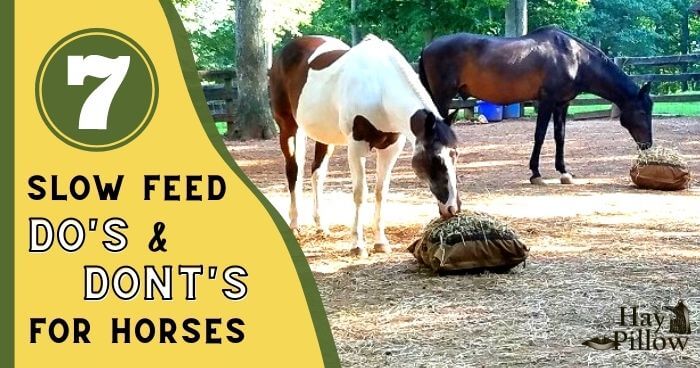
1) Do Consider Ease of Loading
Easy loading - and the ability to load ahead of time - makes feeding easier. 10 minutes, once or twice a day, is a minimal time investment for your horse to have forage available 24/7.
Don’t discount slow feeding entirely due to the time required to load your feeders.
2) Do Provide Access to Forage 24/7
Choose appropriate slow feeders that can accommodate enough hay so there is always hay left between feedings. If your horse won't be "fed" for 12 or 14 hours, you may need a bale net or multiple slow feed bags/nets in different locations to offer enough slow fed forage.
If appropriate forage is available at all times, your horse can typically eat more and maintain or lose weight. A slow, steady flow of forage will help to regulate insulin spikes. A slow metabolic rate (body survival mode) created from forage restriction may take some time to speed up. Include routine exercise.
Don’t expect any one slow feeder to have the ability to provide a rate of consumption slow enough to provide forage 24/7 if you severely restrict intake (for example, feeding less than 1 1/2% of body weight in a 24 hour period).
Meal fed individuals are typically anxious at feeding time, easily frustrated and more determined to eat as fast as possible. Choose a larger mesh size if this describes your horse. A mesh size that is too small can result in possible damage to teeth, gums and the slow feed device.
See our posts Slow Feeding - Transition Tips & Techniques and How I Choose the Best Slow Feeder for more helpful tips.
3) Do Offer Multiple Feeding Locations - Regardless of the Enclosure Size
Horses enjoy foraging for food. They were not designed to be stationary for extended periods of time. Mobility promotes gut motility, increases metabolic rate, and allows your horse to choose where he is the most mentally and/or physically comfortable.
Don’t provide one feeding location and expect voluntary movement. Keep in mind, not all slow feed devices are appropriate for all weather conditions. During inclement weather, you may need more than one type of feeder for under cover and outside use. See our tips for slow feed options by weather condition/environment.
When more than one horse, offer a minimum of one location per individual. If your horse is an only child, provide a minimum of 2 slow feed stations to encourage movement. Pictured are four Standard Hay Pillow slow feed hay bags set out for three horses.
4) Do Experiment with Slow Feeders & Mesh Sizes
Experimentation is key to determining the best mesh size (for overweight individuals) that keeps your horse nibbling and able to extract hay without frustration. Too small of a mesh size creates frustration. Frustration is counterproductive.
Don’t continue the use of any slow feeder that stresses - or injures - your horse. Stress and/or frustration increases gastric acid production and defeats the purpose.
Bonus: Potential Safety Risks & Tips
Slow feeder safety is important. As with any device, there are potential risks (including, but not limited to, damage to teeth, gums and lips and entanglement).
Please don’t sacrifice your beloved companion’s physical and/or mental health in an attempt to slow his rate of consumption to the point of injury or frustration.
See our post Horse Slow Feeder Safety Tips to learn:
- The three primary causes for damage to lips, teeth and gums
- Tips for using varied slow feed surfaces
- Tips when shopping for a new slow feeder
5) Do Feed from Ground Level to Enable a Natural Grazing Posture & Relaxed Mental State
Eating as nature intended offers your horse many physical and emotional benefits.
Don’t mount or hang a slow feeder any higher than necessary. Although hanging bags is not optimum, if you must, you can minimize adverse physical effects:
- If your horse is barefoot, hang it low, around 4" off the ground when empty
- For shod livestock, hang it just high enough to be out of strike range when empty
6) Do Offer Tested Low NSC (10% or below) Straight Grass Hay for Overweight Individuals
Consult an equine nutritionist to ensure all vitamin/mineral/protein requirements are being met in proper ratios/amounts and unique conditions are addressed.
Don’t offer the only source of forage in a new slow feeder. To ease the transition, feed as you normally would and offer the slow feeder in addition. Often horses will choose eating from a slow feeder over loose hay - especially if it engages their natural grazing instincts.
7) Do Buy Multiple Slow Feeders if You Board Your Horse
You can fill them ahead of time if barn staff are not willing to refill them. And using them outside in a run or paddock will prevent the hay from blowing around while you encourage your horse to move between feeding stations. It’s a wise investment and you won’t spend any more. A device that is used 25% of the time will last 4 times longer!
Don’t expect all boarding facilities to be on board with slow feeding - so make sure you check with your barn in advance.
Did You Know?
Most slow feed manufacturers are willing to offer advice on how to maximize your slow feed investment - call them. A phone call may make or break the success of their product for your individual situation and goals. Take advantage of their knowledge and experience. Have questions? Contact an expert by email or call 888-489-0022.
Helpful How-to Resources for Slow Feeding
- Horse Slow Feeder Safety Tips
- Slow Feeding - Tips & Techniques
- Choosing a Mesh Size
- Slow Feed Solutions by Enclosure Type & Weather Condition
- 9 Benefits of Slow Feeding Horses
- How I Chose the Best Slow Feeder for My Horse
- 6 Great Reasons to Feed Your Horse from Ground Level
- Sand Colic - The Surprising (Simple) Cure & Prevention
- Can Horses Eat More Hay Without Weight Gain? The Surprising Factors
- How to Introduce & Incorporate Free-Choice Forage - Action Plan
- How & Where to Test Your Horse's Hay & Interpret Results
- Preventing Equine Gastric Ulcers - How Forage Buffers Acid
- 7 Easy Ways to Help Prevent Colic
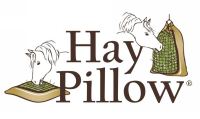
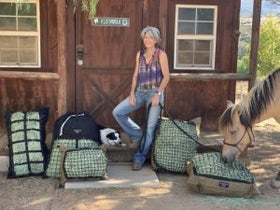
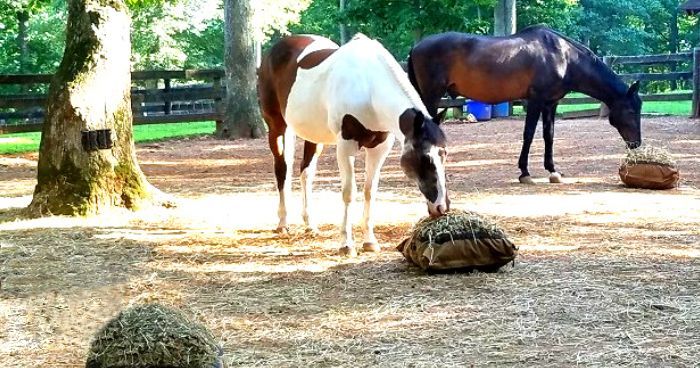
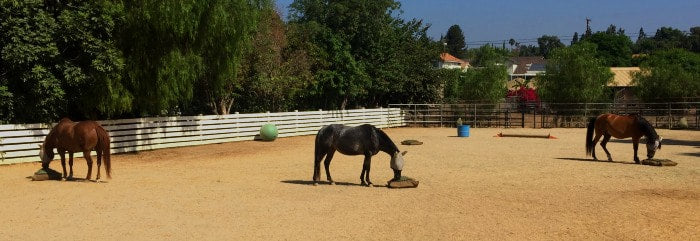
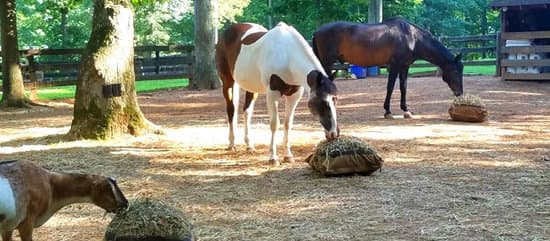

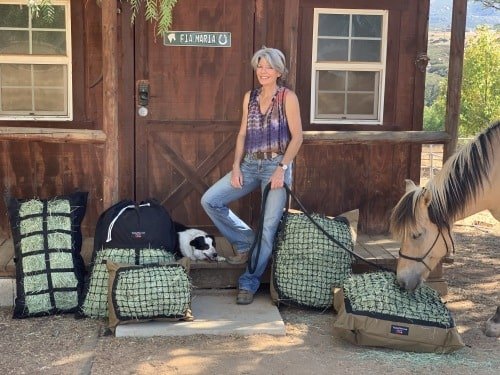
6 Comments -
Marcee Nash •
← 1 2
Hello
I have 6 of these great hay bags for my horses
I am getting 2 baby goats when they are able can they use these or will they chew them up?
Thx Marcer